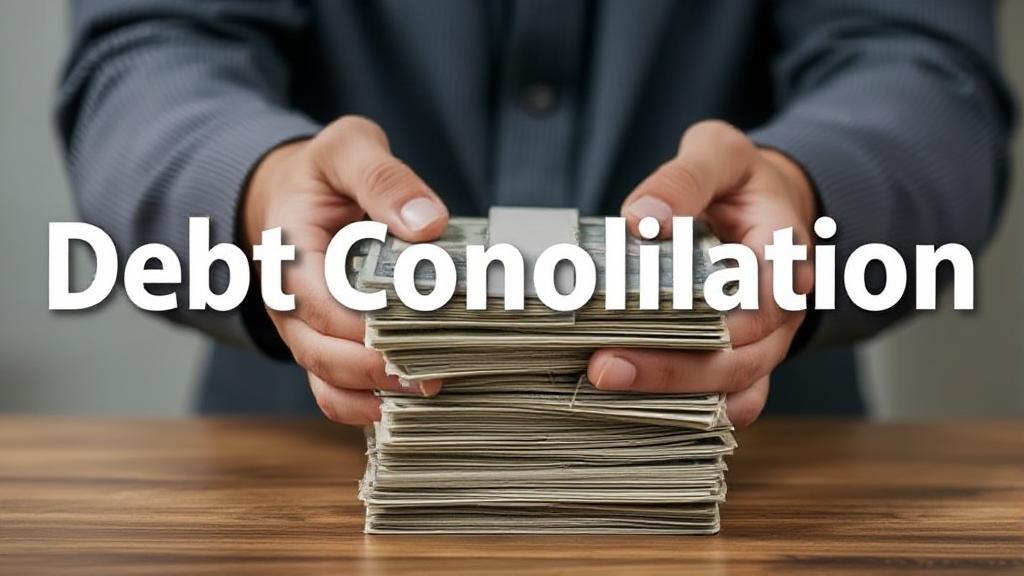What is Debt Consolidation?
Debt consolidation is a financial strategy that involves combining multiple debts into a single loan with the aim of reducing monthly payments, lowering interest rates, or both. This approach can simplify your financial life by turning multiple payments into one, potentially making it easier to manage your debt.
Types of Debt Consolidation Loans
Personal Loans
The most common type of debt consolidation loan is a personal loan from a bank, credit union, or online lender. These typically offer:
- Fixed interest rates
- Predictable monthly payments
- Terms ranging from 2-7 years
- No collateral requirements
Home Equity Loans or HELOCs
For homeowners, these options can provide:
- Lower interest rates
- Longer repayment terms
- Tax-deductible interest
- Higher loan amounts
Warning: Using your home as collateral puts it at risk if you default on the loan.
How Debt Consolidation Loans Work
The process typically involves these steps:
-
Assess Your Debt: Start by listing all your current debts, including credit cards, personal loans, and any other outstanding balances. Note the interest rates and monthly payments for each.
-
Research Lenders: Look for lenders that offer debt consolidation loans. This can include banks, credit unions, and online lenders. Compare interest rates, fees, and terms.
-
Apply for a Loan: Once you've chosen a lender, you'll need to apply for the loan. This typically involves a credit check and providing information about your income and debts.
-
Use the Loan to Pay Off Debts: If approved, the lender will provide you with a lump sum that you use to pay off your existing debts.
-
Repay the Loan: You'll then make monthly payments to the lender until the loan is paid off.
Benefits of Debt Consolidation
- Simplified Payments: Instead of juggling multiple payments, you only have to worry about one.
- Potentially Lower Interest Rates: If you qualify for a lower interest rate, you can save money over the life of the loan.
- Fixed Repayment Schedule: Most consolidation loans have fixed terms, which means you'll know exactly when your debt will be paid off.
- Potential Credit Score Improvement: By making regular payments and reducing credit card utilization, your credit score may improve over time.
Requirements and Considerations
Requirements
To qualify for a debt consolidation loan, lenders typically look at:
- Credit score (usually 650+ for better rates)
- Debt-to-income ratio
- Employment history
- Annual income
Important Considerations
- You may not qualify for better rates if your credit is poor
- Longer loan terms could mean paying more interest overall
- Some loans carry origination fees
- Without addressing spending habits, you might accumulate new debt
Alternative Options
If debt consolidation isn't right for you, consider:
- Balance Transfer Credit Cards: Transfer high-interest debt to a card with 0% introductory APR
- Debt Management Plans: Work with a credit counseling agency to negotiate with creditors
- Debt Settlement: This involves negotiating with creditors to pay a lump sum that's less than the full amount owed
- Debt Snowball/Avalanche Methods: Systematic approaches to paying off debt without new loans
Best Practices for Success
- Create a budget using tools like Mint or YNAB
- Set up automatic payments
- Avoid taking on new debt
- Build an emergency fund to prevent future credit reliance
- Check your credit report at AnnualCreditReport.com
For more information, visit resources like NerdWallet, Investopedia, or the Federal Trade Commission (FTC).
